Purple hibiscus
The story of a girl's coming-of-age in Nigeria has many aspects of your standard coming-of-age novel : first love (unrequited or unattainable, naturally), wonderful descriptions of the life going on around her, and some memorable characterizations.
I loved Adichie's portrayal of small-village life, of Aunty Ifeoma's family, and of Papa Nnukwa, the "heathen" of the family. The effects of colonialism on African life were also well described from the snobbishness of some families' attitudes towards speaking English, and even wanting their children in private to speak English as well, to the bizarre (to my mind) insistence on English names for confirmation into the Church - I don't know if this is still the case now, I sincerely hope it isn't.
Her portrayal of domestic violence was chilling, as were the attempts by the victims to cover up the violence, or even attempt to justify it. What I was less convinced by was her portrayal of Papa - the instigator of the violence. Papa is, to outside observers, a shining product of his country, and of colonialism - he is a member of the Roman Catholic Church, charitable, and even a crusader for justice sponsoring a local, outspoken newspaper. In private he is a cold angry man, who rules his family by fear and violence - the acts of violence are chillingly and matter-of-factly described.
His private life is contrasted with his outward religious life, and I think that Adichie was trying to suggest that Papa's violence was in some way related to his faith. In her interview in the PS section, she says
I wanted Papa to be a man who did horrible things but who, ultimately wasn't a monster...There are lots of people who are kind and generous and thoughtful but, in the name of religion, do all sorts of awful things
This is where I have a problem. I think he does come across as a monster. In spite of the heroine Kambili's frequent statements that she adores her father, it is hard to know why, except for the fact that he is her father. He is undoubtedly brave and generous, but when contrasted to the life he subjects his family to it's hard to think of him ultimately as a good man. His neglect of his father is quite clearly due to his religious convictions, but the violence, I think, has little to do with religion - he may use religion to justify it, but I don't think that's enough to support Adichie's statement.
Extremely good first novel, but Half a yellow sun is so much better.
I loved Adichie's portrayal of small-village life, of Aunty Ifeoma's family, and of Papa Nnukwa, the "heathen" of the family. The effects of colonialism on African life were also well described from the snobbishness of some families' attitudes towards speaking English, and even wanting their children in private to speak English as well, to the bizarre (to my mind) insistence on English names for confirmation into the Church - I don't know if this is still the case now, I sincerely hope it isn't.
Her portrayal of domestic violence was chilling, as were the attempts by the victims to cover up the violence, or even attempt to justify it. What I was less convinced by was her portrayal of Papa - the instigator of the violence. Papa is, to outside observers, a shining product of his country, and of colonialism - he is a member of the Roman Catholic Church, charitable, and even a crusader for justice sponsoring a local, outspoken newspaper. In private he is a cold angry man, who rules his family by fear and violence - the acts of violence are chillingly and matter-of-factly described.
His private life is contrasted with his outward religious life, and I think that Adichie was trying to suggest that Papa's violence was in some way related to his faith. In her interview in the PS section, she says
I wanted Papa to be a man who did horrible things but who, ultimately wasn't a monster...There are lots of people who are kind and generous and thoughtful but, in the name of religion, do all sorts of awful things
This is where I have a problem. I think he does come across as a monster. In spite of the heroine Kambili's frequent statements that she adores her father, it is hard to know why, except for the fact that he is her father. He is undoubtedly brave and generous, but when contrasted to the life he subjects his family to it's hard to think of him ultimately as a good man. His neglect of his father is quite clearly due to his religious convictions, but the violence, I think, has little to do with religion - he may use religion to justify it, but I don't think that's enough to support Adichie's statement.
Extremely good first novel, but Half a yellow sun is so much better.
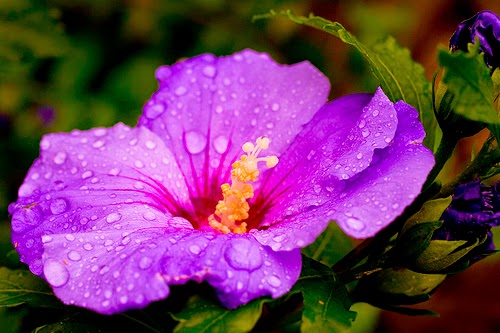
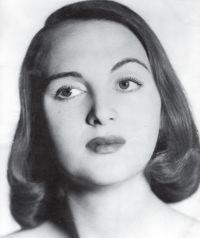
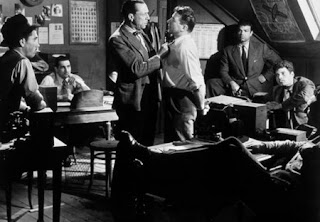
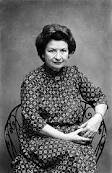

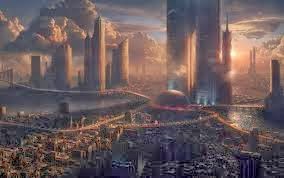
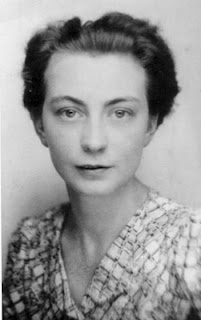
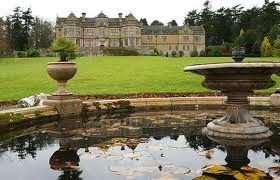


Comments